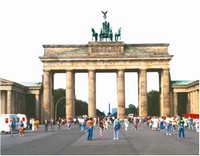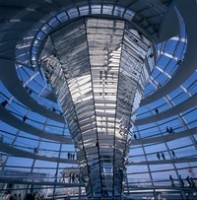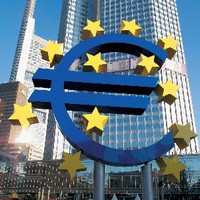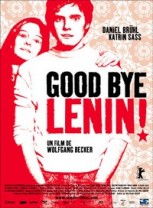Receive our newsletter
Your e-mail address is only used to send you our newsletter and information about the activities of Strasbourg Europe. You can always use the unsubscribe link included in the newsletter.

Created in 962 by Otto 1st (Otto the Great), the German Holy Roman Empire was ruled for centuries by the powerful Habsburg dynasty. During the 16th century, the posting of Luther’s thesis against the papacy led to the start of the protestant Reformation.
Gate of Brandebourg, Berlin © Berlin-Tourist-information.de


 The European Central Bank (ECB) is the bank in charge of managing the monetary policy of the countries within the Euro zone. Its headquarters is located at Frankfurt-am-Main. Founded in 1998 to introduce and manage this new currency, it plays a key role in the European Union’s economic and monetary policy. Given the task of maintaining price stability within the Euro zone, it closely monitors annual inflation levels and controls the money supply (setting interest rates for the entire Euro zone). The ECB’s organizational structure is based around three decision making bodies: the Governing Council, which is the decision making body that actually decides on monetary policy, the Executive Board which implements this policy and sends the instructions to the national central banks and the General Council which contributes to the bank’s consultative, decision making and coordinating activities, and prepares the future enlargement of the Euro zone. Since November 1st 2019, Christine Lagarde was appointed President of the European Central Bank for a non-renewable term of 8 years.
The European Central Bank (ECB) is the bank in charge of managing the monetary policy of the countries within the Euro zone. Its headquarters is located at Frankfurt-am-Main. Founded in 1998 to introduce and manage this new currency, it plays a key role in the European Union’s economic and monetary policy. Given the task of maintaining price stability within the Euro zone, it closely monitors annual inflation levels and controls the money supply (setting interest rates for the entire Euro zone). The ECB’s organizational structure is based around three decision making bodies: the Governing Council, which is the decision making body that actually decides on monetary policy, the Executive Board which implements this policy and sends the instructions to the national central banks and the General Council which contributes to the bank’s consultative, decision making and coordinating activities, and prepares the future enlargement of the Euro zone. Since November 1st 2019, Christine Lagarde was appointed President of the European Central Bank for a non-renewable term of 8 years.
The symbole of the Euro in front of the Eurotower in Frankfurt © BC
 The second long film from the German filmmaker Wolfgang Becker “Goodbye Lenin”, discovered during the Berlin film festival in 2003, won the “Blue Angel” prize awarded to the best European film (as well as the César for the best foreign film). This poignant story of an East Berlin woman who wakes up from a coma after the fall of the Berlin wall, has fascinated more than 9 million European viewers including 6 million in Germany.
The second long film from the German filmmaker Wolfgang Becker “Goodbye Lenin”, discovered during the Berlin film festival in 2003, won the “Blue Angel” prize awarded to the best European film (as well as the César for the best foreign film). This poignant story of an East Berlin woman who wakes up from a coma after the fall of the Berlin wall, has fascinated more than 9 million European viewers including 6 million in Germany.
The Oscar of the best foreign film 2006 was handed over to another German film: “The Lives of Others” (original title: “Das Leben der Anderen”). This film is about the espionage in times of Stasi in the GDR. The storyline depicts the inspection of an artist couple by an agent after a request of the Ministry of Culture. This alarming fiction shows us the surveillance methods and the intensive spying in former Eastern Germany.
Have a look at the poster of the film “The Lives of Others”
Your e-mail address is only used to send you our newsletter and information about the activities of Strasbourg Europe. You can always use the unsubscribe link included in the newsletter.
Information Center
on the European Institutions (CIIE)
Europe Direct Information Center
All rights reserved to the CIIE
Non-profit organization
Mailing address
1 allée Kastner
67000 Strasbourg
France
Visitors entrance
8 rue Boecklin
67000 Strasbourg
France
To provide the best experiences, we use technologies such as cookies to store and/or access device information. Consenting to these technologies will allow us to process data such as browsing behavior or unique IDs on this site. Failure to consent or withdrawing consent may adversely affect certain features and functions.
Europe Direct network
The CIIE team
Contact information and opening hours
Lieu d’Europe
The CIIE offices
Contact us
CIIE’s Documentation Centre & Publications
School presentations & Activities
Borrowing of learning material
Activities for the general public
Institutions of the European Union in Strasbourg
Institutions Under the Authority of the Council of Europe
Other European Organisations in Strasbourg
Sessions of the European institutions in Strasbourg
Visiting the institutions
Map of the European district of Strasbourg
Institutions in Strasbourg in photos
Discover artistic Europe
National holidays of the member states of the Council of Europe